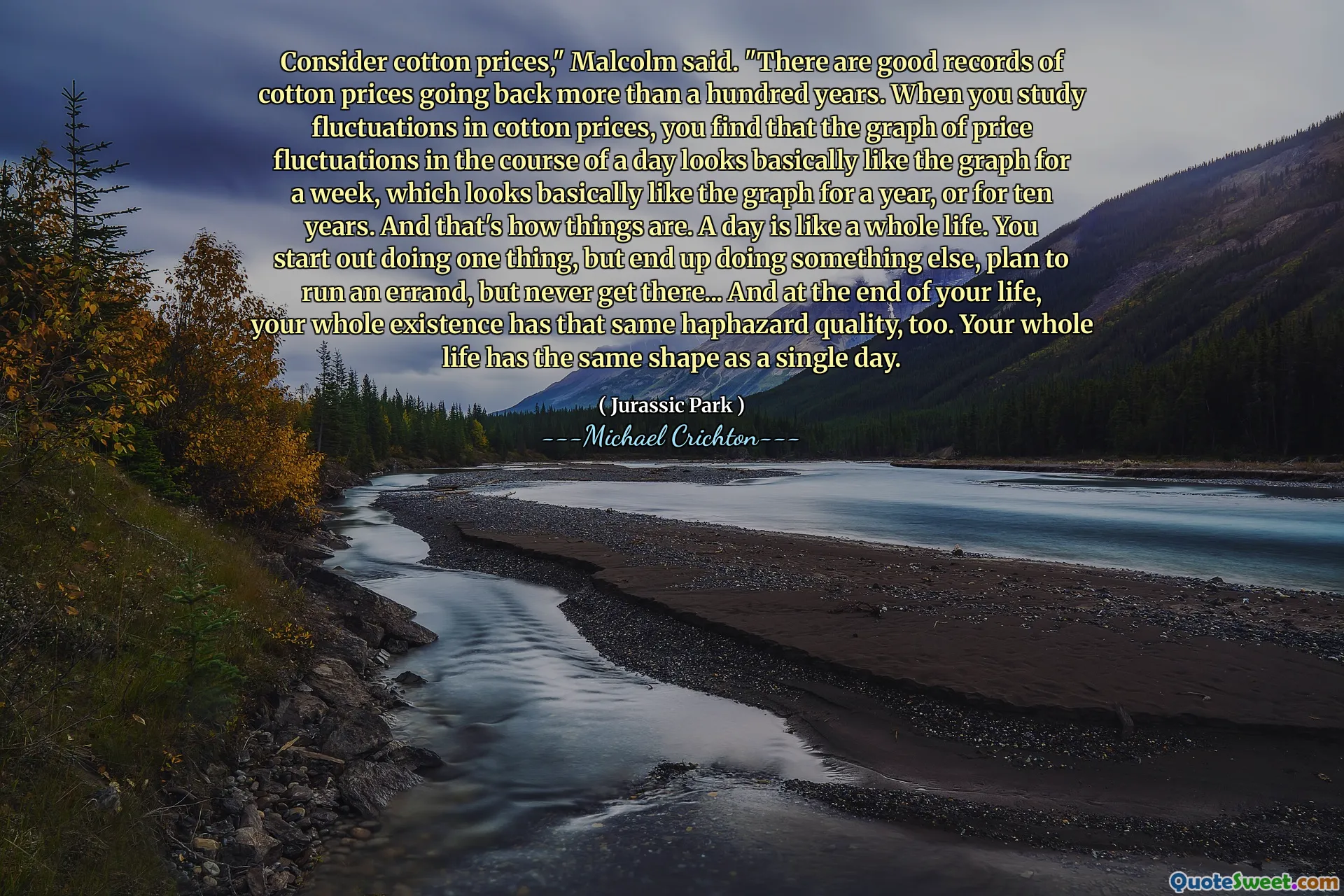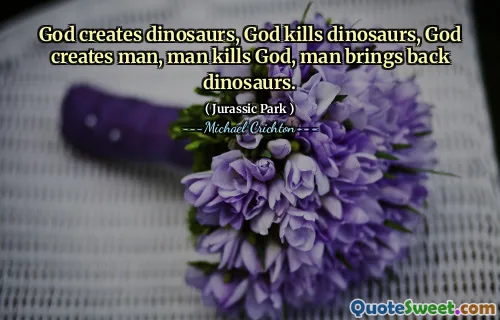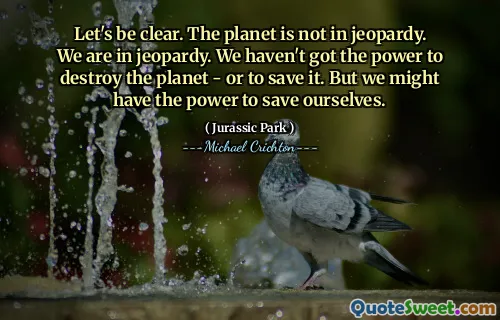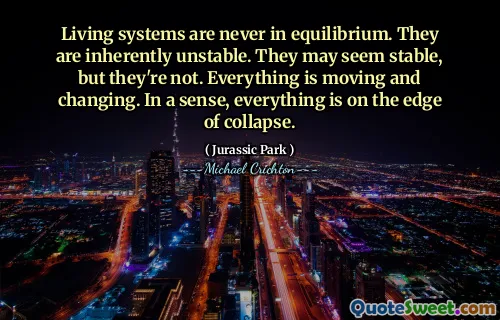
Consider cotton prices," Malcolm said. "There are good records of cotton prices going back more than a hundred years. When you study fluctuations in cotton prices, you find that the graph of price fluctuations in the course of a day looks basically like the graph for a week, which looks basically like the graph for a year, or for ten years. And that's how things are. A day is like a whole life. You start out doing one thing, but end up doing something else, plan to run an errand, but never get there... And at the end of your life, your whole existence has that same haphazard quality, too. Your whole life has the same shape as a single day.
In Michael Crichton's "Jurassic Park," the character Malcolm draws a comparison between the fluctuations of cotton prices and the unpredictability of life. He observes that price trends over different time frames—whether daily, weekly, or annually—mirror each other, demonstrating a pattern of chaos. This idea reflects the nature of daily experiences, where one starts with intentions but may end up diverging from their original plans.
Malcolm suggests that life mirrors this daily unpredictability. Just as a day can deviate from its initial purpose, so can an entire lifetime, characterized by unforeseen changes and the lack of control over circumstances. Ultimately, he implies that both a single day and a full life share a chaotic structure, where intent and outcome can differ greatly, leading to a sense of randomness in both existence and experiences.







